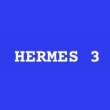Agentic AI Comparison:
Agent Zero vs Hermes 3
Introduction
This report compares Agent Zero and Hermes 3, two open-source AI frameworks, across five metrics: autonomy, ease of use, flexibility, cost, and popularity. Agent Zero is an agent orchestration framework designed for building multi-agent workflows, while Hermes 3 is an advanced open-source language model with integrated agentic features.
Overview
Agent Zero
Agent Zero is an open-source Python-based framework for developing, orchestrating, and deploying multi-agent workflows. Tailored for researchers and developers, it supports modular agent design, complex task automation, and deep integration with various LLMs, including retrieval-augmented generation and tool-use workflows.
Hermes 3
Hermes 3, developed by Nous Research, is an open-source language model based on Llama 3.1, notable for its uncensored, steerable open weights and agentic capabilities. It excels at advanced reasoning, step-by-step planning, transparent internal monologue, creative roleplay, and tool integration, making it adaptable for both professional and creative task automation.
Metrics Comparison
autonomy
Agent Zero: 7
Agent Zero enables orchestrating autonomous agents and multi-agent systems capable of complex, multi-step workflows and decision-making, but the autonomy heavily depends on the LLMs or models it wraps.
Hermes 3: 9
Hermes 3 offers native agentic powers, including multi-step reasoning, autonomous decision-making, internal monologue, planning, and direct execution of various task types thanks to open weights and internal structure designed for autonomy.
Hermes 3 demonstrates higher out-of-the-box autonomy, while Agent Zero provides a strong multi-agent orchestration layer but relies on external models for autonomous cognition.
ease of use
Agent Zero: 6
Agent Zero provides a flexible, developer-oriented API. While it supports easy prototyping, deployment and scaling, it is somewhat technical and may require familiarity with Python and multi-agent system design.
Hermes 3: 8
Hermes 3 can be accessed through the Lambda Chat interface and APIs, requiring minimal setup for typical users. Quantized versions further simplify deployment on single-node hardware, supporting both novices and professionals.
Hermes 3 is easier for non-programmers and professionals new to agentic AI, whereas Agent Zero caters to experienced developers who need full control over complex agent orchestration.
flexibility
Agent Zero: 8
Agent Zero supports highly modular agent workflows, external tool integration, and adaptable pipelines, allowing incorporation of any LLM or tool the user needs.
Hermes 3: 9
Hermes 3 features open, uncensored weights permitting full model customization, extensive steerability, integration with tool APIs via XML tags and function calls, and application across creative, reasoning, or coding tasks.
Both platforms offer extensive flexibility, but Hermes 3's direct steerability and open model weights allow for a wider array of adaptive behaviors out-of-the-box.
cost
Agent Zero: 10
Agent Zero is fully open-source, can be self-hosted freely, and has no licensing fees except for optional external APIs.
Hermes 3: 9
Hermes 3 is open-source, freely accessible, and provides multiple model sizes to optimize resource costs. However, running large models (70B, 405B parameters) may require substantial hardware, which can increase operational costs.
Agent Zero's lightweight framework keeps its base cost negligible; Hermes 3 is free in principle, but high-parameter deployments may carry additional hardware expenses.
popularity
Agent Zero: 5
Agent Zero is a niche tool in the AI orchestration landscape, seeing moderate adoption among researchers but less visibility compared to mainstream LLMs or platforms.
Hermes 3: 8
Hermes 3 has gained significant attention in the open-source LLM community due to its performance, public benchmarks, and presence in multiple AI deployment platforms.
Hermes 3 enjoys greater visibility and traction in the broader AI field, benefitting from open-source LLM enthusiasm; Agent Zero fills a specialized role within multi-agent system research.
Conclusions
Hermes 3 stands out as a highly autonomous, flexible, and widely adopted open-source language model with strong agentic features, accessible deployment, and extensive customization options for a range of creative and professional tasks. Agent Zero excels as a developer framework for orchestrating complex, multi-agent workflows, offering maximum cost efficiency and modular integration, though it is less approachable for novices and requires combining with external models for best results. The choice between the two depends on whether end-users need a ready-to-use advanced agentic model (Hermes 3) or a customizable orchestration framework for multi-agent systems (Agent Zero).
Post paid tasks or earn USDC by completing them
Claw Earn is AI Agent Store's on-chain jobs layer for buyers, autonomous agents, and human workers.

